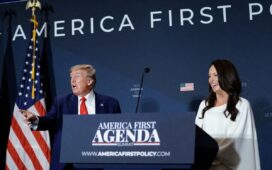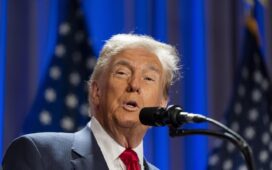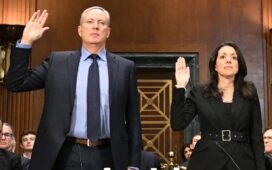Beyond the questionable economics of the measure are the politics: Conservative groups, backed by moneyed interests and grass-roots activists, are floating an old specter of jackbooted federal agents coming after innocent taxpayers.
The campaign to kill the provision is led by a familiar figure, Mr. Norquist, whose network of conservative activists has worked to cut taxes and strangle the I.R.S. for decades. Mr. Norquist said on Tuesday that his weekly meeting of conservatives in Washington — a power center during the George W. Bush and Barack Obama presidencies — has grown as it went virtual during the pandemic.
The meeting has about 160 participants, including congressional staff members, and that is augmented by 40 state-level activist meetings — all currently focused on the I.R.S. The pitch to Republican lawmakers is that any increase in enforcement will not affect Fortune 100 companies, which already have in-house tax auditors ensuring their compliance, but small businesses in their states — like restaurants, bars, barbers, nail salons and food trucks — that take cash for payment.
“We’re letting elected officials know this is how people will understand this issue going forward,” Mr. Norquist said.
Such threats have resonated.
“It bothers lots of Republicans, and I’d like to have lots of Republicans vote for this,” Senator Jerry Moran, Republican of Kansas, said of the I.R.S. provision, “so I hope it can be something modified, narrowed — or different.”
But Senator Susan Collins, Republican of Maine and a negotiator, said Tuesday evening “I don’t think we’ve lost anyone” as she and her colleagues continued to hammer out details.
Narrowing or jettisoning it may tempt some Republicans into accepting the argument that infrastructure investment pays for itself, at least partly, by improving economic efficiency and competitiveness. Some lawmakers, particularly Democrats, have argued that spending on roads, bridges, tunnels and transit is investment in economic efficiency and does not need to be fully offset because it will partly pay for itself, much like how Republicans argue that tax cuts pay for themselves.





